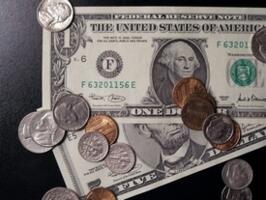38% Haven’t Finished Their Holiday Shopping; 18% Still Haven’t Started
Panic time? Thirty-eight percent (38%) of American Adults haven’t finished their holiday shopping with Christmas coming on Sunday, and 18% haven’t even started yet, according to a new Rasmussen Reports national telephone survey.
(Want a free daily e-mail update? If it's in the news, it's in our polls). Rasmussen Reports updates are also available on Twitter or Facebook.
The survey of 1,000 Adults nationwide was conducted on December 21-22, 2011 by Rasmussen Reports. The margin of sampling error is +/- 3 percentage points with a 95% level of confidence. Field work for all Rasmussen Reports surveys is conducted by Pulse Opinion Research, LLC. See methodology.









